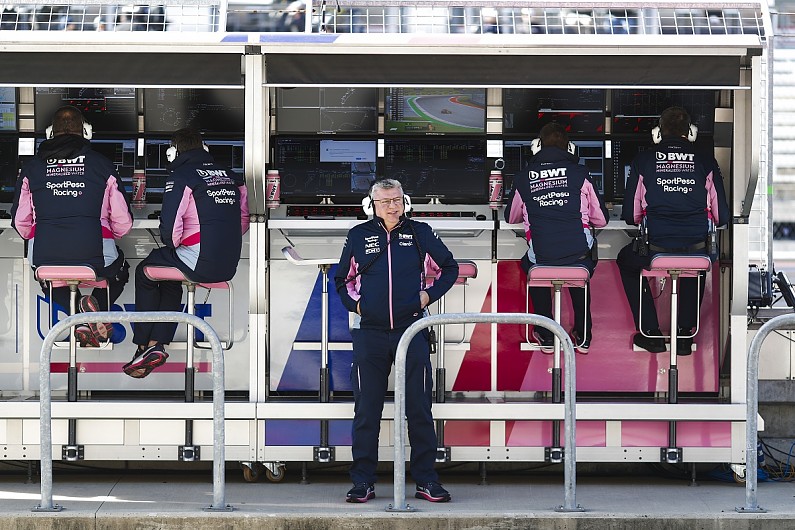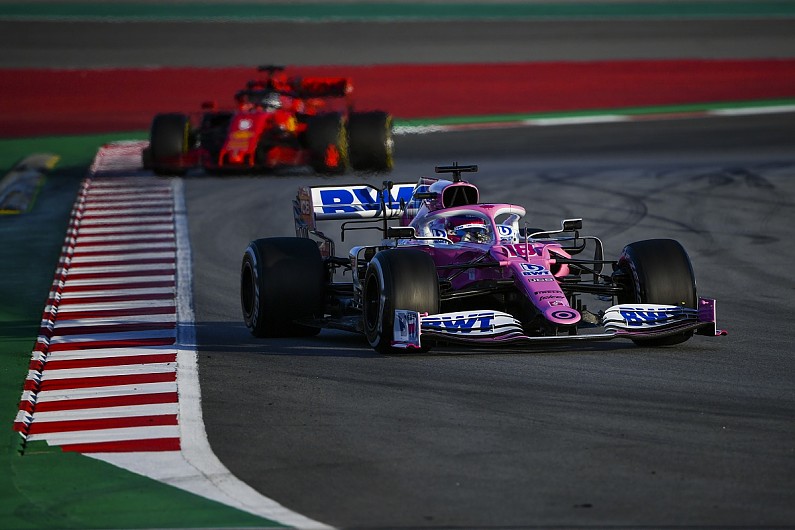Racing Point team principal Otmar Szafnauer says Formula 1’s reduced cost cap has the potential to be performance “leveller”.
F1 teams have already agreed in principle to lower the 2021 cost cap limit from $175m to $150m as a result of the economic impact of the coronavirus pandemic, but are split over negotiations to reduce it further.
Ferrari has indicated it is unwilling to bring the level below $145m, while McLaren wants it reduced to around $100m.
The talks are part of a sustained drive to protect the teams during the economic fallout of the COVID-19 crisis, but Szafnauer explained that the cost cap could also be used to close the gaps between the teams and produce healthier competition levels – which could have added long-term sustainability benefits for F1.
“The other thing that we have to remember is that [with] the cost cap you don’t have to spend the money,” he told Autosport.
“You don’t have to, even if the cost cap is $170m. We at Force India, for example, in dollar terms, with all the exclusions, we used to spend around just over $100m, say $110m.
“But there are lots of exclusions. So if you take out all the exclusions, my guess is we were spending around $70m. And that $70m got us to fourth [in the constructors” championship] – and a few times [2016 and 2017].

“If you’re at $170m, it doesn’t mean you have to spend $170m, but what it does mean is for you to win, you got to spend that $170m.
“So the cost cap is also a leveller in competitiveness, really, and the performance you can get out of it.
“We’ve got to be careful that we’re not just saying ‘cost cap for financial reasons’. The cost cap also helps with closing up the field.”
 Can F1’s ‘best’ small team win again?
Can F1’s ‘best’ small team win again?
Regarding the standoff over the cost cap negotiations, Szafnauer said he could he see where the various sides were finding it difficult to compromise.
“I can see both sides of the argument,” he explained.
“The bigger teams that today spend $300m-plus having to come down to $170m, $150m – or $100m [or] even lower – they’re screaming, saying, ‘Well, I’m going to have to cut a lot of people.
“‘That’s hard to do – and I’ve invested a lot of money because the rules were such that if I do invest, I get a better chance of winning. And now you’re trying to take that away from me, that’s unfair.’
“And then I can see the argument that Zak [Brown, McLaren CEO] makes, saying, ‘We need a realistic cost cap, where every team could be financially stable, if not even making a little bit of money – what’s wrong with that?’
“So I think the right cost cap should be somewhere in between, and we’re well on our way in everybody negotiating and discussing and coming up with a cost cap that’s either equally liked or equally disliked.”
